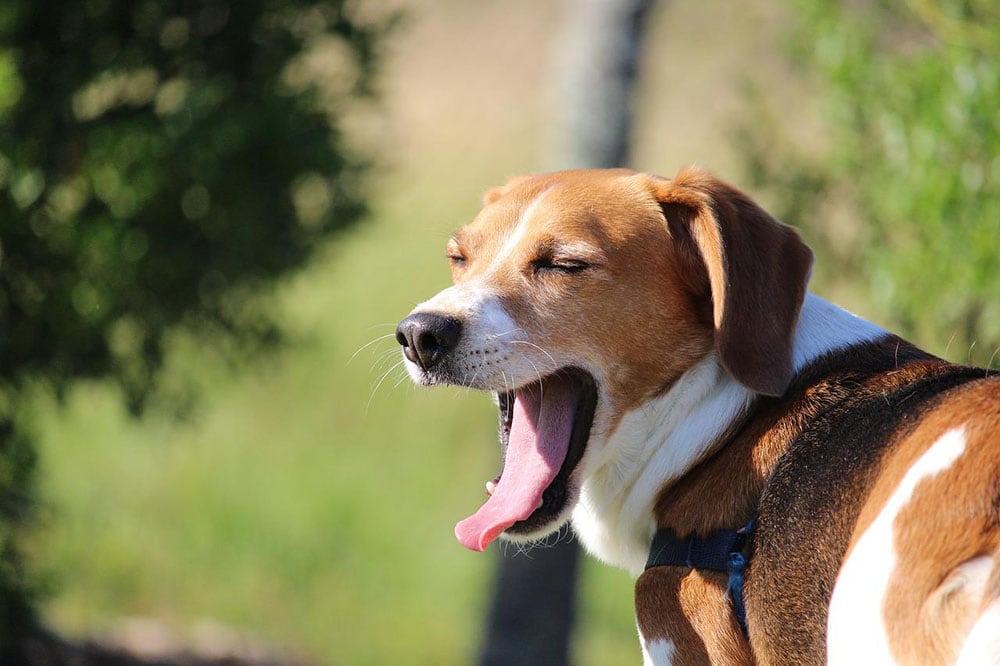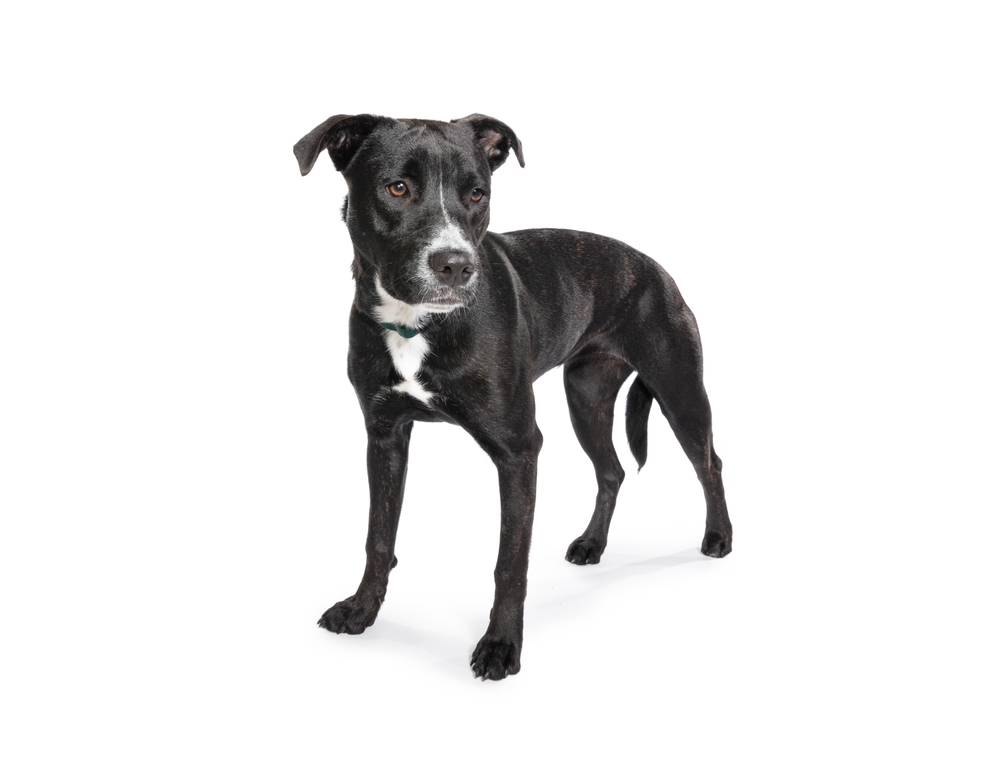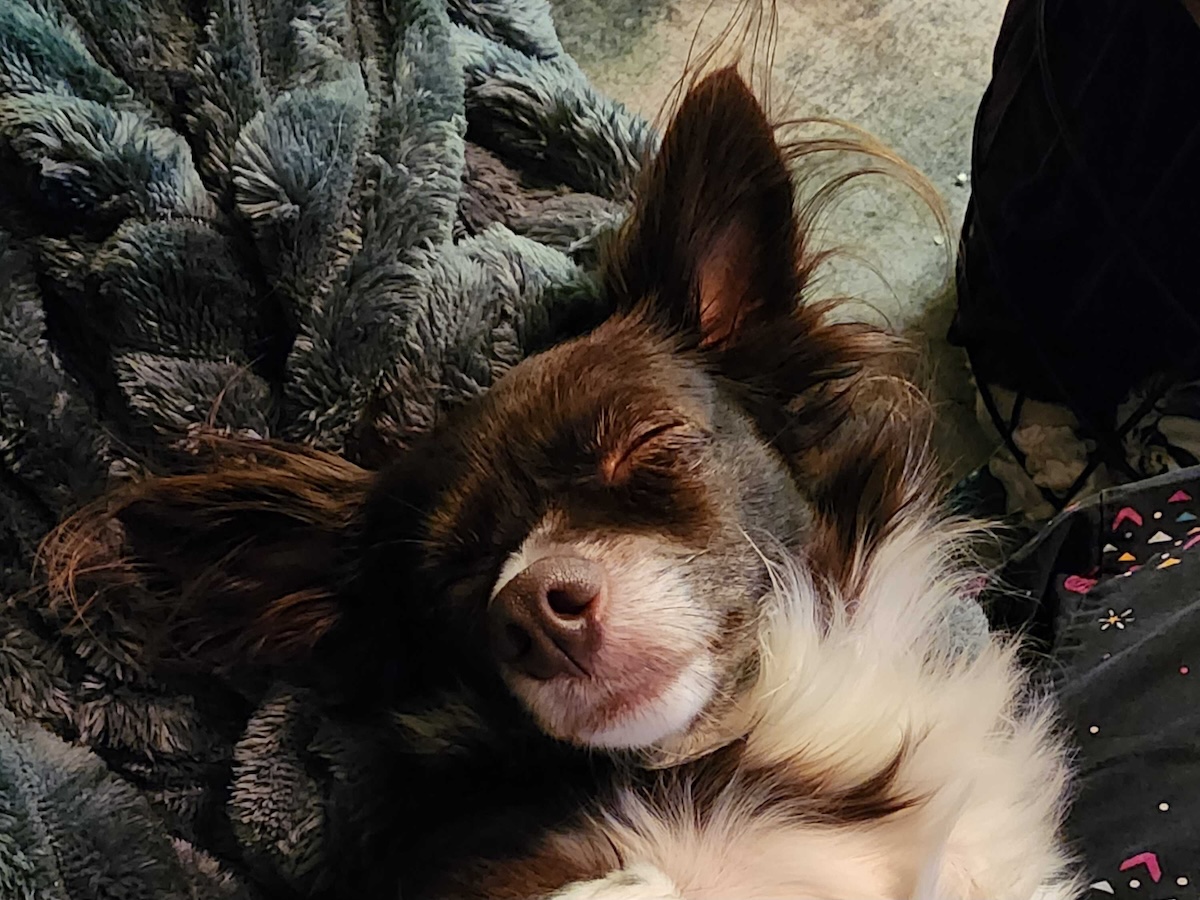If you’ve noticed that your adorable dog has breath that smells like rotting garbage, you might be curious about the cause of the stench. Does your dog’s bad breath typically come from their stomach, or is there another source? Stomach issues can cause bad breath in dogs, but there can be several other culprits, including serious medical conditions.
In this article, we explain how your dog’s stomach health can impact their breath. We also discuss the other causes of bad breath and the steps that you can take to improve your pup’s stinky kisses.
How Tummy Trouble Leads to Bad Breath
Normally, a healthy canine digestive tract contains a balance of bacteria, which aids in the digestion and absorption of food. Any disruption in this balance or an overgrowth of unfamiliar bacteria can cause smelly breath in your dog. This bacteria absorbs into the bloodstream from the stomach, then travels to the mouth where the dog breathes it out.
Any type of digestive issue can alter your dog’s gut bacteria and cause bad breath. However, it is especially common among dogs that eat raw food or a home-cooked diet. Raw diets may contain dangerous bacteria, such as Salmonella, that can build up in your dog’s stomach.
It can also be difficult to make sure that homemade diets are nutritionally balanced. A lack of essential nutrients can lead to bacterial imbalances and eventually result in bad breath.
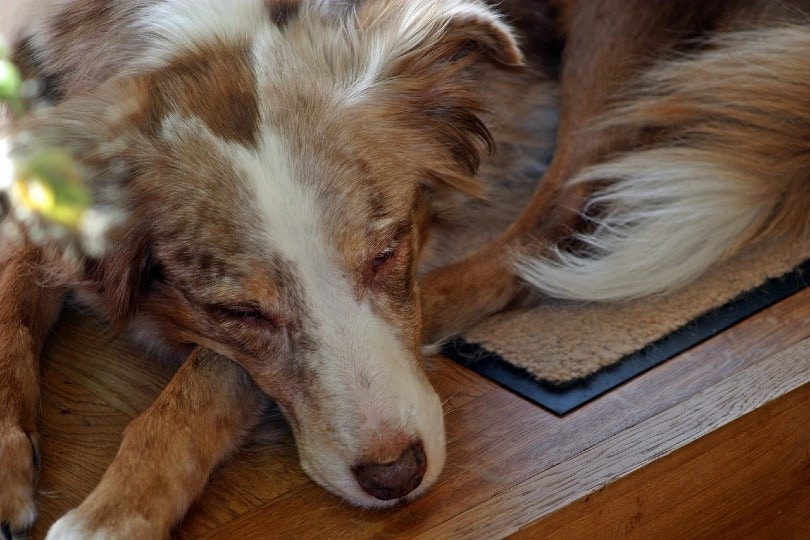
Other Causes of Bad Breath
Besides rogue stomach bacteria, there are several other causes of doggie bad breath.
1. Dental Problems
Dirty teeth and diseased gums, or periodontal disease, are among the most common causes of bad breath in dogs. Like humans, dogs can have tartar and plaque build-up on their teeth, especially if they don’t receive regular dental care as part of their grooming routine. Their gums can also become inflamed.
Mouth tumors, more common in older dogs, can also cause bad breath if they become infected or begin to rot away.
2. Something They Ate
Many dogs seem to have an unfortunate taste for eating things that humans find disgusting, such as dead animals or cat poop, and that can make their breath stinky. Sometimes, they eat foreign objects like sticks that may become lodged in their mouths, eventually becoming infected and smelly. Certain toxic substances can also cause your dog’s breath to smell rotten if ingested.
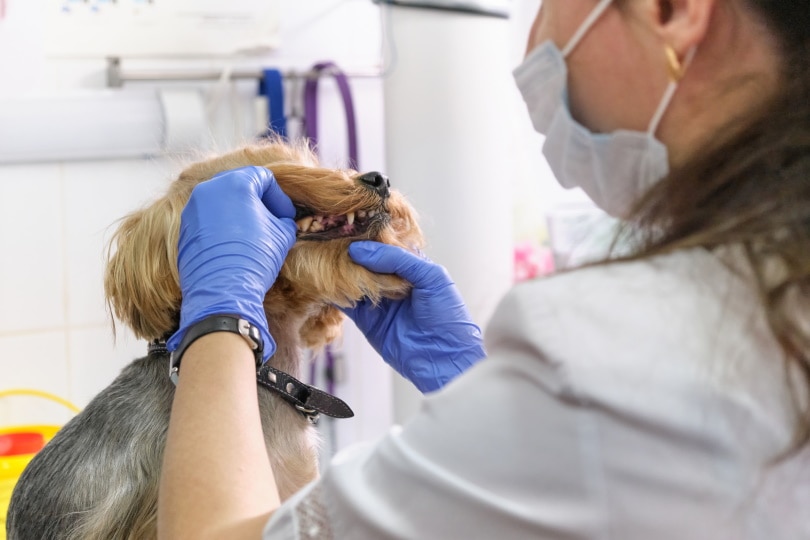
3. Other Medical Conditions
Certain medical conditions, some of them life threatening, can also cause bad breath. For example, dogs with kidney disease can develop breath that smells like ammonia because a chemical called urea builds up in their bloodstream. Dogs with diabetes that is not well-controlled or dogs with liver disease may also develop bad breath as a side effect of these conditions.
What to Do If Your Dog Has Bad Breath
If you’re feeding your dog a homemade diet, double check the recipe with your veterinarian to ensure it is complete and balanced, and avoid any nutritional deficiencies that could lead to bad breath. Most veterinarians recommend avoiding raw diets, anyway, because of the dangers to humans and animals. This precaution can also help your dog’s breath.
Include dental care, such as brushing or oral health products, in your dog’s grooming routine. Some breeds that are more prone to dental disease may need regular cleanings from your veterinarian. If your dog’s teeth seem clean, but you still smell bad breath, have your dog examined by a vet to check for foreign objects or tumors.
If a medical condition is causing your dog’s bad breath, you will likely notice other signs:
- Weight loss
- Vomiting
- Excessive drinking and peeing
- Yellowish eyes and gums
- Lethargy
- Loss of appetite
Many of the medical conditions that cause bad breath can be serious or even life threatening. See your veterinarian as soon as possible if you observe any of these signs.
Final Thoughts
Loving your dog doesn’t always mean loving everything about them, such as their bad breath. While your dog’s stomach could be responsible for their breath, it’s not the only possible cause. Don’t assume that bad breath is just a normal dog trait that you have to live with. It could be a sign of a serious problem. Even if it isn’t, there are steps that you can take to help improve your dog’s stinky mouth.
- See also: How to Clean Your Dog’s Teeth
Featured Image Credit: RogerMayhem, Pixabay

